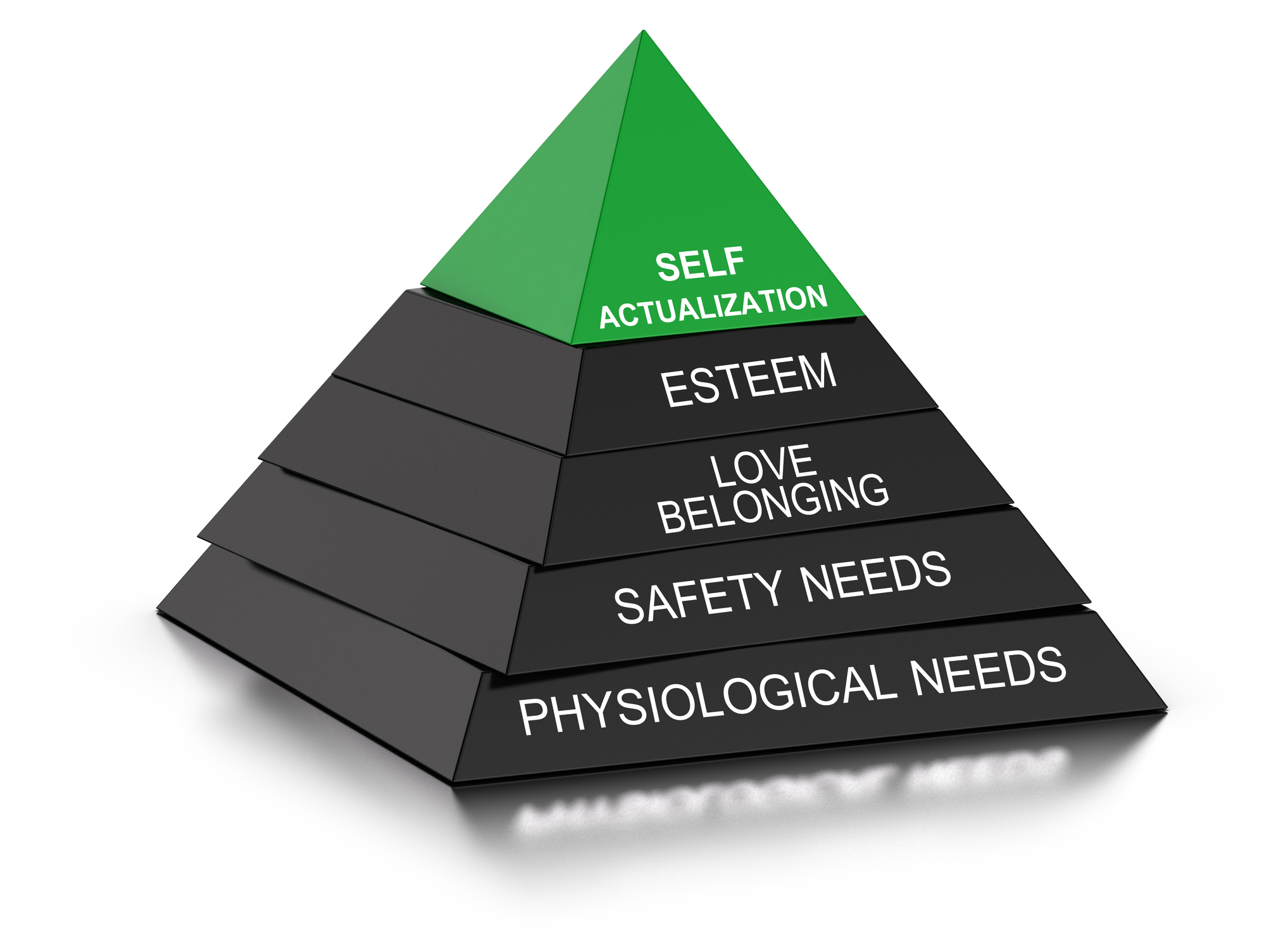Self-actualisation is, in essence, ‘becoming everything that one is capable of becoming’ to quote American psychologist Dr Abraham Maslow. You may be familiar with his famous Hierarchy of Needs, which suggests the five human needs of
physiological, safety, love and belonging, esteem and self-actualisation – with the latter only being possible once the others have been fulfilled. But what does self-actualisation actually look like and how can you tell you’re
achieving it in your career?
1. Do you know what motivates you?
‘Something to get your head around if you are wanting to become more self-actualised is what motivates you and what demotivates you,’ says life coach Naomi Light. ‘These could be all kinds of things including your environment, perks and
rewards, how you respond to challenge, routines and rhythms and who you are spending time with.’ Working out the thing that really makes you tick, as opposed to what you think should make you tick or what you’ve read makes
others tick, is the trick here. Before deciding on an important career move it is worth doing some investigation into your ‘intrinsic motivations’ – how you are wired to be motivated – and to work these into your future plans.
2. How well are you able to handle stress?
Acceptance of yourself and others and a sense of purpose are a common trait of the self-actualised, says Light. ‘The self-actualised handle stress well and have a clear sense of their own moral intuition,’ she says. ‘The people I know
who have done a lot of work on themselves and appear to have come to a greater sense of self-actualisation are often joyful, but without being cut off from their own sadness or grief.’
3. Do you focus on the ‘how’ or the ‘what’?
One mistake people often make when trying to self-actualise is to look at the ‘what’ and not the ‘how’ of their career, says Light. ‘For example, “I like maths so I will get a job in finance”. Instead, ask yourself questions such as,
“What is the culture of the organisation like?” “What is the speed of change or the options for career progression?” “How much autonomy or flexibility will I have in my role?” “Do I want just one main job or several part-time jobs that
allow me to express different parts of myself?”.’
4. Are you interested?
‘Adopting a curious mindset that enables you to try new things will expose you to lots of learning about yourself,’ says Light. ‘Write lists of interests or goals and use it as inspiration to get outside your comfort zone and do
something you have not done before.’ She adds, ‘I have been really helped by journalling. This enables me to catch my observations and then develop them through observation of my journal entries. Spending time reflecting on my
experiences and what they tell me about myself and others has layered insights into my observations. I have had to practise mindfulness too so that I don’t get lost in introspection and become a walking list of issues.’
5. Are you craving something?
‘Some of my coaching and psychotherapy clients would say they feel bored, even though they are very busy. They feel unfulfilled, as in, “Is this it? There must be something more to life than this?”, but beat themselves up for thinking
that way,’ says coach and psychotherapist Karin Peeters. ‘Many have a deep-seated wish of becoming self-employed, but fear the financial consequences, or don’t yet know exactly what sort of company to build.’ Key to this is connecting
who you truly are with what you feel is expected of you. This transition, says Peeters, often brings up a lot of fears, from surface-level concerns around money to things like not feeling good enough. Working out what it is you’re
craving – or why you’re craving it – is key to self-actualisation.
6. Are you always looking for growth?
Business coach Gemma McCrae believes that self-actualisation is a state of always looking to self-improve. ‘The process keeps an individual on their toes in a strive to reach full potential… and once you’ve reached self-actualisation,
feel extreme satisfaction,’ she says. The trick here, she adds, is to stay clear on your goals: ‘Don’t become distracted or obsess about financial success and don’t lose motivation to achieve your full potential.’
To learn more about self-actualisation, listen to our recent webinar with executive coach Lucy Ball –
Supercharged self – tapping into the power of your full potential.





